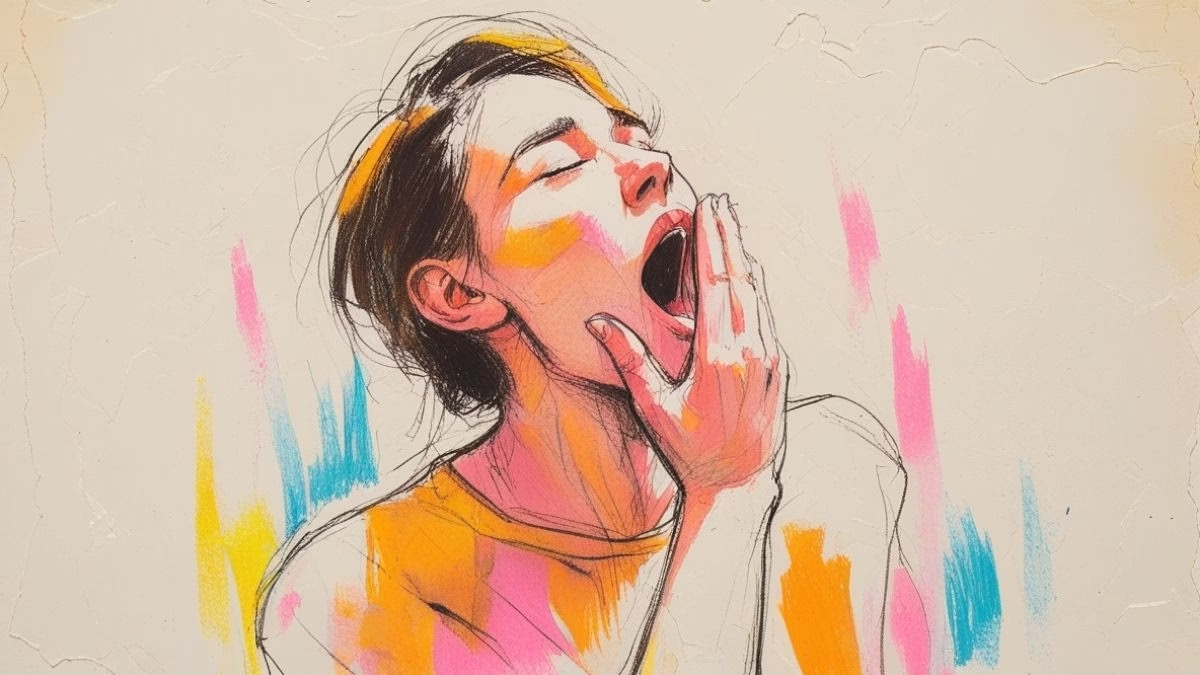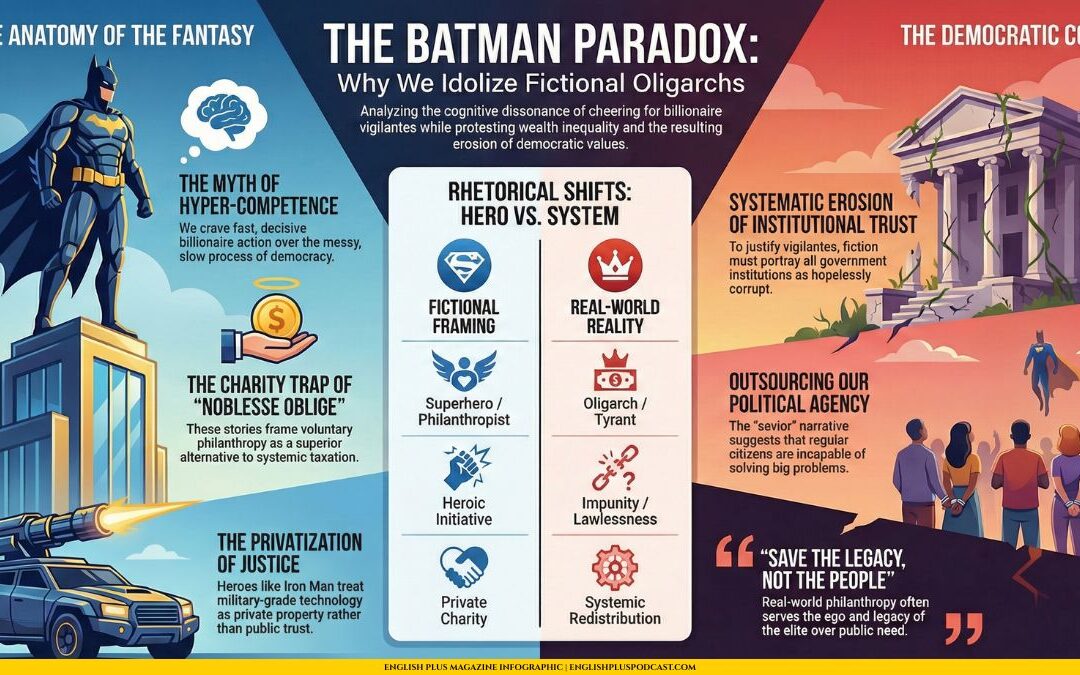SparkCast Episode
The SparkCast episode is not just a reading of the article below; it’s a lively discussion based on the topic of the article, so you don’t want to miss it!
[ppp_patron_only level=5]
The Mysterious Science of the Yawn Transcript: Click to Open
The Mysterious Science of the Yawn
Did you just yawn? I mean seriously even just thinking about the word yawn can sometimes make you do it. It’s true It’s one of those really universal kind of unconscious things We all do right whether feeling sleepy or bored or maybe just waking up Mm-hmm, but have you ever like really stopped to wonder why why do we actually yawn? It seems so simple on the surface exactly for something so common. The real reason is well, it’s surprisingly slippery Scientists are actually still trying to pin it down.
Yeah, the definitive answer isn’t quite there yet It’s not really just about getting more oxygen into our blood. I feel like I heard that forever That’s the classic one and why is it so incredibly contagious that parts while definitely and here’s a real head-scratcher Could a yawn actually be your brain’s way of trying to wake you up not put you to sleep That’s one of the fascinating twists. Absolutely.
Hmm. Welcome to a new spark cast from English plus podcast today, we’re taking a deep dive into the fascinating complex and Often misunderstood world of the yawn We’re gonna try and unpack some of the surprising science behind this everyday reflex and what’s really compelling here I think is how something that looks so simple on the outside Can involve so many different Biological and social mechanisms, right? We’ll explore the theories, you know from those old assumptions those myths right up to the most compelling current Hypotheses. Yeah, and hopefully connect the dots on why this common act is well, it’s far more than meets the eye Okay, let’s unpack this then for ages.
Like I mentioned the go-to explanation was the oxygen theory. Mm-hmm the oxygen deficit idea It just made so much sense didn’t it? You’re tired. Maybe you’re breathing gets shallow.
So your body goes Okay, big gulp of air needed get more oxygen flowing. It sounds perfectly plausible. Absolutely Yeah on the surface it clicks.
I sense a butt coming. There’s a big butt Studies it pretty conclusively put that theory to bed. Really? How did they test that? Well researchers got quite rigorous they had people breathe air with Higher levels of carbon dioxide.
Okay, so that should make you yawn more if you need oxygen Exactly if the theory holds or they had them breathe pure oxygen, which should you know, make them yawn less, right? Makes sense and the result basically neither condition had any significant effect on how often people yawned Wow So nothing pretty much nothing. So while it’s a really persistent myth, you know, it pops up all the time Yeah, I still hear it. The science just doesn’t support it yawning isn’t really about oxygen intake in that way So the oxygen theory is officially out.
That’s actually a huge shift in thinking for something So basic it is but okay, it begs the question then if our bodies aren’t like starved for air What is the most compelling scientific explanation now? What’s the front-runner? Forget oxygen the the most compelling insight right now The leading hypothesis is that a yawn is actually your brain’s personal air conditioning system air conditioning For the brain the biological air conditioner. Yeah. Yeah, your brain is incredibly sensitive to temperature it Performs optimally when it’s kept cool Okay, and when we’re tired or interestingly even when we’re concentrating really hard our brain temperature can actually rise a bit, huh? That’s a remarkable idea So it’s not just a sign of being tired maybe but literally a physiological way to regulate brain temperature.
That’s the core idea. How How does that work physically like the mechanics of it, right? So the theory suggests a couple of things are happening first that big intake of cooler air during a deep yawn Yeah that can directly lower the temperature of the blood that’s heading up towards your brain Okay cools the blood supply exactly and second the really powerful stretching of your jaw muscles when you yawn yeah, it’s a big stretch that action actually increases blood flow to the head and that Increased circulation helps dissipate excess heat away from the brain. Ah Okay, like flushing the system with cooler fluid and venting heat precisely It’s almost as if your brain is signaling you get a little warm in here time for a quick cool-down That makes a lot of sense Especially, you know those long study sessions or intense work days when your brain just feels like it’s overheating Mm-hmm, or even just before bedtime when body temperature naturally fluctuates, right? But that makes me wonder about something else you mentioned the contagious part.
You brought it up right at the start just Hearing the word can set us off. It’s such a powerful unconscious reaction. Ah, yes the contagious yawn This phenomenon is truly intriguing and it really moves us beyond just pure physiology into the social realm Well, yeah, we know that this contagious effect doesn’t typically kick in until kids around four or five years old Oh interesting.
Why that age what’s significant about that age is it’s also Roughly when children start developing more complex social cognitive abilities like the ability to understand and Sort of mirror others emotional states theory of mind starts developing. So you’re saying it’s not just a random Mirroring like copying someone scratching your nose, but it’s actually linked to something deeper like Empathy, that’s the really key insight here. Yes.
The leading idea is that contagious yawning isn’t just simple mimicry It’s considered a subtle form of social signaling Potentially linked directly to our capacity for empathy Wow It’s like a primitive unconscious way our brains mirror the internal state of the people around us It’s almost as if your brain observe someone yawn and things Oh, they might be tired their brain might be warming up. Maybe mine is too or I should sync up syncing up exactly And in fact studies have pretty consistently shown that people who score higher on standard empathy tests They tend to be more susceptible to contagious yawning. No way really? Yeah, it’s a subtle often totally unconscious way We connect with and kind of sync up emotionally or physiologically with those around us.
That’s a genuinely surprising connection We always think of yawning as just being about being tired or bored But it might actually be this powerful unconscious social bond between us it points in that direction It’s fascinating and you hinted earlier though at another theory one that almost seems to contradict everything we associate with yawning The idea it wakes us up Yes, this definitely raises an important question because it’s quite the plot twist, isn’t it? Well, we deeply associate yawning with being tired with sleepiness Some researchers propose it’s actually a reflex designed to increase alertness To wake us up Well think about when you yawn. It’s often when you’re sleepy, but you’re actively trying to stay awake Yeah, like in a long meeting or driving late exactly or Consider yawning right after you wake up when you’re trying to transition into alertness for the day The morning stretch and yawn combo right so that big stretch in that gulp of air Might not just be a sign that you’re about to nod off, but it’s your brain fighting back Trying to jolt you awake. I’ve definitely felt that little surge sometimes after a big yawn during particularly dull afternoon precisely The entire process that deep breath the vigorous jaw stretch the rush of blood to the head We talked about for cooling all of that could also serve as a built-in mechanism to briefly increase alertness and arousal levels Hmm it seems particularly useful when you’re in those transitional states, you know between sleep and wakefulness or even just when you’re Experiencing a lull and attention or focus.
So yes that yawn in the boring meeting might not just be a sign of boredom It might be your brain’s last-ditch effort to keep you focused and engaged It certainly challenged my own assumptions when I first started looking into the research It flips the common understanding on its head. Okay. Wow.
So let’s try and pull this together What does this all mean for us for understanding ourselves? We’ve seen that the yawn is well, it’s way more than just a sign of being tired or needing oxygen Definitely not oxen. We’ve certainly put that old oxygen theory firmly to bed good rinse instead It looks like it’s potentially a brain cooler, which is amazing. It’s a powerful social signal potentially linked to Empathy mm-hmm the contagious aspect and maybe even a secret alertness booster your brain’s own little mechanism trying to keep you focused when you Start to drift exactly.
It’s multifaceted and if we connect this to the bigger picture I think it really highlights how these seemingly simple Everyday human behaviors are often intricately linked to our deep physiological needs like brain temperature our social bonds Through empathy. Yeah, and even our evolutionary past these reflexes likely served important functions And this raises an interesting question, doesn’t it about how we interact with each other often completely unconsciously? It really does and thinking about that empathy link Given that contagious yawning seems so deeply connected to empathy What does it truly say about us as a species that we have this? This unconscious almost built-in way of syncing up with each other on such a basic level It suggests a deep-seated drive for social connection perhaps and maybe think about this, too What about how we often try to stifle or hide our yawns, especially in social or you know professional settings? We try to cover it up. What does that say about our social conditioning versus this underlying biology? That’s a great point We’re suppressing a natural physiological and potentially social reflex because of learned as social rules Exactly so the next time you let out a huge maybe even satisfying yawn Remember, it’s probably not just about needing sleep or needing air or needing air think of it Maybe is this mysterious multi-talented biological reflex doing its fascinating work behind the scenes It just reminds us there’s always more to learn about the everyday wonders that make us human and this was another spark cast from English plus Podcast don’t forget to check out the full article on our website English plus podcast comm for more details Thank you for listening stay curious and never stop learning.
We’ll see you in the next episode
[/ppp_patron_only]
Did You Just Yawn?
I bet you did. Or you thought about it. Or you’re about to. Just reading the word “yawn” can trigger one. It’s one of the most contagious and unconscious things we do. We do it when we’re tired, when we’re bored, when we wake up, and sometimes, for no reason at all. But why do we yawn? For something so common, the real reason is a surprisingly slippery and fascinating mystery that scientists are still trying to pin down.
The Old Myth: The Oxygen Theory
Let’s get the big old myth out of the way first. For a long time, the prevailing theory was that we yawn to bring more oxygen into our blood when our brain’s supply is low. It sounds plausible, right? You’re tired, your breathing slows down, so your body triggers a big gulp of air to re-oxygenate. The only problem is, it’s almost certainly not true. Studies where people breathed air with high levels of carbon dioxide (which should have made them yawn more) or pure oxygen (which should have made them yawn less) showed it had no effect on their yawning frequency. So, we can put that theory to bed.
The Brain Cooler Hypothesis: A Biological Air Conditioner?
The most popular and compelling theory right now is that yawning is your brain’s personal air conditioning system. Your brain is incredibly sensitive to temperature and works best when it’s cool. When we’re tired, or when we’re concentrating hard, our brain temperature can rise. The theory goes that a big, deep yawn does a couple of things: the massive intake of cooler air can lower the temperature of the blood heading to your brain, and the powerful stretching of the jaw muscles increases blood flow, helping to dissipate heat. So, a yawn might just be your brain’s way of saying, “Phew, getting a little hot in here! Time for a cool down.”
The Social Mirror: Why Is It So Contagious?
This is where it gets really interesting. Why is yawning so contagious? If you see, hear, or even just read about someone yawning, you’re likely to do it too. This phenomenon doesn’t kick in until we’re about four or five years old, which is around the same time we develop the ability to understand others’ emotional states. This suggests that contagious yawning is a form of social signaling or empathy. It’s a primitive way our brains mirror the state of the people around us. It’s like your brain saying, “Oh, Dave is tired and his brain is heating up? Maybe mine is too. Let’s all yawn together and be safe.” In fact, studies have shown that people who score higher on empathy tests are more susceptible to contagious yawning.
A Sign of Alertness? The Plot Twist
Here’s a fun contradiction for you. While we associate yawning with being tired, some researchers think it’s actually a reflex to wake us up. Think about when you yawn: when you’re sleepy and trying to stay awake, or right after you wake up and are trying to get going. The whole process—the deep breath, the jaw stretch, the rush of blood—could be a built-in mechanism to briefly increase alertness and arousal when you’re in a transitional state between sleep and wakefulness. So that yawn in a boring meeting might not just be a sign of boredom; it might be your brain’s last-ditch effort to keep you focused.
So, What’s the Deal?
Is it brain cooling? Empathy? Arousal? The honest answer is probably a little bit of all of the above. Like many human behaviors, yawning is likely a complex phenomenon with multiple functions that have evolved over time. It’s a physiological reflex wrapped in a social signal. It’s a simple, everyday act that connects us to our evolutionary past, our brain’s intricate workings, and even to each other. So the next time you let out a huge, satisfying yawn, don’t just think of it as a sign of being tired. Think of it as a mysterious, multi-talented biological reflex doing its fascinating work.
Final Thoughts
Let’s test the theory! Did this article make you yawn? And what do you think is the primary reason we do it—brain cooling, social bonding, or something else entirely? Let me know in the comments!
Discussion Questions
- If contagious yawning is linked to empathy, what does it say about us as a species that we have this built-in, unconscious way of syncing up with each other?
- Think about other “contagious” behaviors, like laughing or smiling. How do these unconscious social signals shape our daily interactions?
- Why do we often try to stifle or hide our yawns in social or professional settings? What does this say about our social conditioning?
Speaking Challenge
Here’s a lighthearted speaking challenge. Try to explain the concept of yawning to a five-year-old child in one minute, without using any complicated scientific terms.
- Hint 1: Use an analogy. “You know how a car’s engine can get hot? Well, your brain is like a little engine, and sometimes it gets too warm, especially when you’re sleepy.”
- Hint 2: Make it a story. “So, your body does a big, stretchy ‘YAWN!’ to pull in some nice, cool air and help your brain feel better. It’s like a little superhero move to cool you down!”
- Hint 3: Explain the contagious part simply. “And when you see someone else do it, your brain says, ‘Hey, that looks like a good idea!’ and wants to do it too!”
The goal is to practice simplifying complex ideas and communicating them in a fun, engaging way.










0 Comments